
Horsh Ehden: The Green Jewel of Lebanon
Nestled in the mountains of northern Lebanon, Horsh Ehden Nature Reserve is a sanctuary for nature lovers. It spans over 1,000 hectares of lush forests, rich biodiversity, and stunning landscapes. The reserve is home to a variety of plants and animals, some of which are rare and endangered. This makes it a prime spot for eco-tourism and a haven for wildlife enthusiasts. The climate in Horsh Ehden is pleasant and cool, offering a refreshing escape from the summer heat. Visitors can enjoy a range of activities, from hiking on well-marked trails to bird watching. The reserve also features several picnic areas where families and friends can relax and enjoy the serene surroundings. One of the highlights of visiting Horsh Ehden is the chance to see the famous cedar trees. These ancient trees are a symbol of Lebanon and have been cherished for centuries. The reserve also includes historical sites and traditional Lebanese villages, providing a glimpse into the rich culture and heritage of the region. Whether you're an adventurer or a peace-seeker, Horsh Ehden offers something for everyone.
Local tips in Horsh Ehden
- Wear comfortable hiking shoes, as the trails can be uneven and rocky.
- Bring plenty of water and snacks, especially if you plan to spend the whole day exploring.
- Visit in spring or early summer to see the blooming wildflowers and enjoy milder weather.
- Check the visitor center for guided tours and information on the best trails.
- Respect the wildlife and plants; do not disturb them or take anything from the reserve.
Horsh Ehden: The Green Jewel of Lebanon
Nestled in the mountains of northern Lebanon, Horsh Ehden Nature Reserve is a sanctuary for nature lovers. It spans over 1,000 hectares of lush forests, rich biodiversity, and stunning landscapes. The reserve is home to a variety of plants and animals, some of which are rare and endangered. This makes it a prime spot for eco-tourism and a haven for wildlife enthusiasts. The climate in Horsh Ehden is pleasant and cool, offering a refreshing escape from the summer heat. Visitors can enjoy a range of activities, from hiking on well-marked trails to bird watching. The reserve also features several picnic areas where families and friends can relax and enjoy the serene surroundings. One of the highlights of visiting Horsh Ehden is the chance to see the famous cedar trees. These ancient trees are a symbol of Lebanon and have been cherished for centuries. The reserve also includes historical sites and traditional Lebanese villages, providing a glimpse into the rich culture and heritage of the region. Whether you're an adventurer or a peace-seeker, Horsh Ehden offers something for everyone.
When is the best time to go to Horsh Ehden?
Iconic landmarks you can’t miss
Cedars of God Bsharri
Discover the stunning beauty and historical significance of the Cedars of God in Bsharri, a UNESCO World Heritage site that showcases Lebanon's natural treasures.
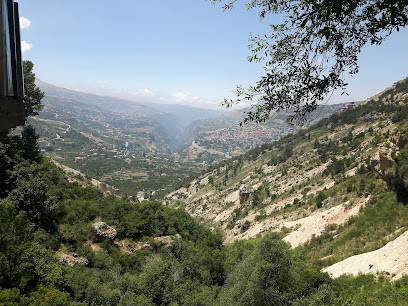
Kahlil Gibran Museum
Explore the Kahlil Gibran Museum in Bsharri, where art, philosophy, and breathtaking landscapes converge in a tribute to Lebanon's literary genius.

Saydet el Hosn - Lady of the Fortress سيدة الحصن
Explore the spiritual beauty and breathtaking views at Saydet el Hosn, a must-visit church in Ehden, Lebanon, rich with history and stunning landscapes.
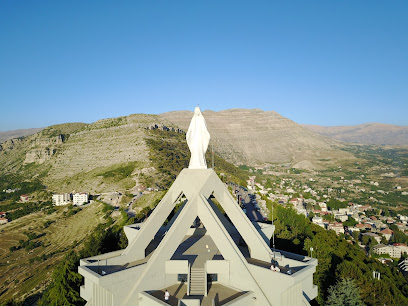
MIST Hotel & Spa
Discover the serene beauty and luxury of MIST Hotel & Spa in Ehden, Lebanon – a perfect escape for relaxation and adventure amidst nature's wonders.

Ehden Country Club
Experience the serene beauty of Ehden at the luxurious Ehden Country Club, where nature meets comfort in the heart of Lebanon.

Ehdeniyat
Discover the vibrant Ehdeniyat festival, where rich Lebanese culture, music, and culinary delights come together in a spectacular celebration in Ehden, Lebanon.
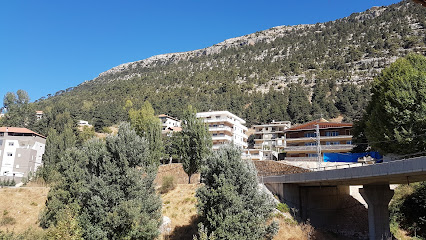
Youssef Beik Karam Statue
Explore the rich history of Ehden at the Youssef Beik Karam Statue, a symbol of national pride and cultural heritage in Lebanon.
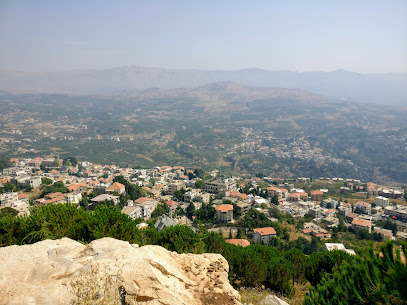
Beit Mirna Guesthouse - Ehden
Discover the serene charm of Beit Mirna Guesthouse in Ehden, Lebanon, where traditional hospitality meets breathtaking natural beauty.
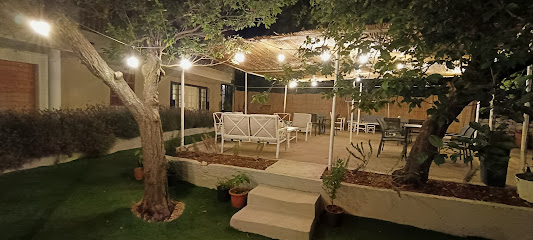
Hotel Ehden
Discover the serene beauty of Hotel Ehden, a perfect blend of comfort and nature in Lebanon's picturesque landscapes.

Master's Hotel - Ehden
Discover the tranquility and natural beauty of Ehden at Master's Hotel, your perfect getaway in the heart of Lebanon's mountains.
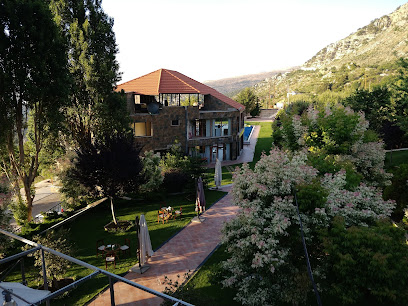
Karaz Guest House
Discover the heart of Lebanon at Karaz Guest House in Eheden, where traditional hospitality meets modern comfort in a scenic Old Town setting.
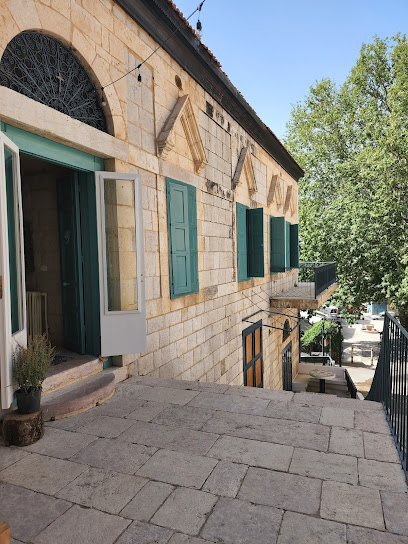
Ehden Adventures
Explore the natural beauty of Ehden Adventures, a premier campground in Lebanon offering outdoor activities, breathtaking views, and family-friendly experiences.
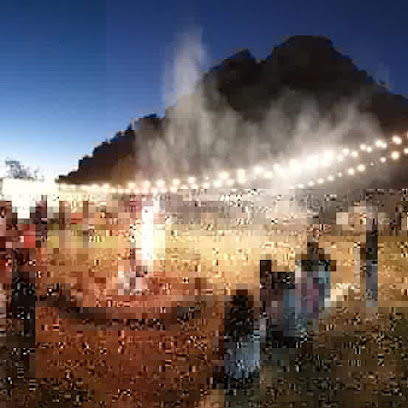
LA RESERVE HORSH EHDEN
Experience luxury and nature in perfect harmony at La Reserve Hors Ehdén, your ideal getaway in the heart of Lebanon's breathtaking landscape.
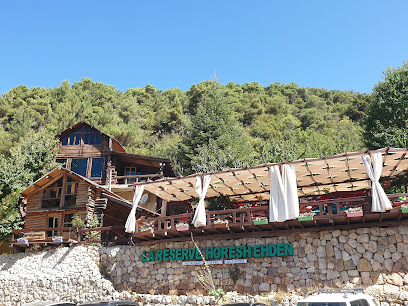
Qannoubine Valley Bsharri
Explore the enchanting Qannoubine Valley in Bsharri, a serene escape with breathtaking nature and rich historical significance.
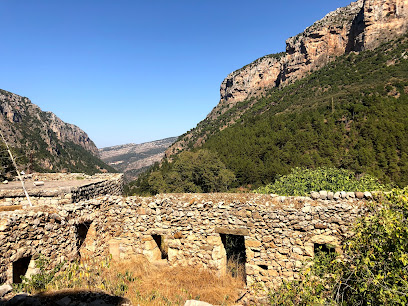
Les Caves d’ ÉDEN Winery
Experience the delightful wines and breathtaking views at Les Caves d’ÉDEN Winery in Ehden, Lebanon, a true haven for wine lovers.
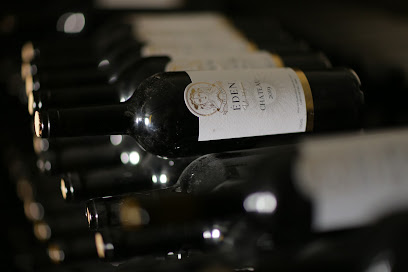
Unmissable attractions to see
Palace of dreams قصر الأحلام بخعون
Discover the magical Palace of Dreams in Bakhaoun, a captivating tourist attraction blending history, stunning architecture, and serene gardens.
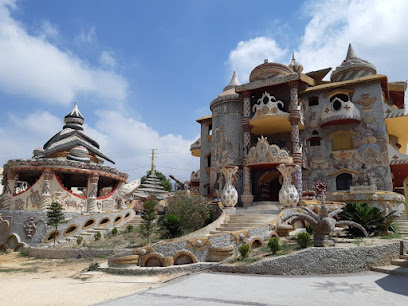
Ehden Adventures
Experience the beauty of Lebanon at Ehden Adventures, your go-to campground for nature, adventure, and serenity.
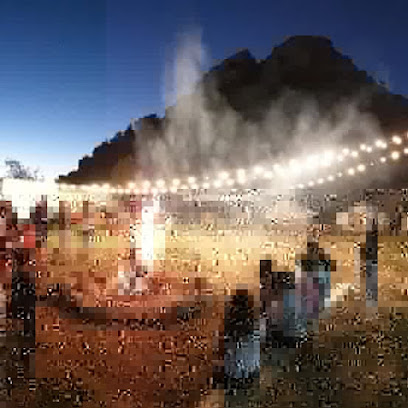
Nessef el batrak -Bsharri
Explore Nessef el Batrak in Bsharri: A natural wonder of Lebanon offering breathtaking views and a serene escape into nature's beauty.
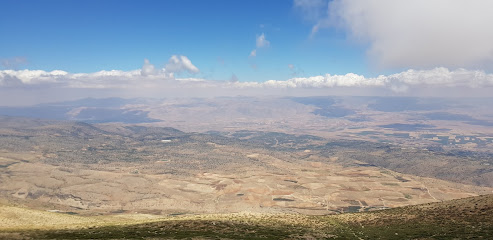
Hadchit Natural Spring
Experience the breathtaking beauty and tranquility of Hadchit Natural Spring, a hidden gem in Lebanon surrounded by lush landscapes and clear waters.
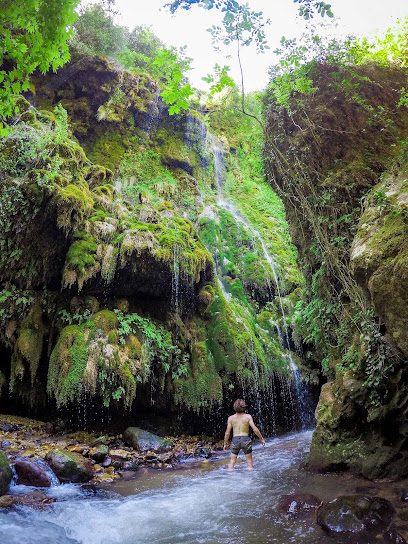
Airplane house
Discover the Airplane House in Miziara, a unique architectural marvel blending creativity with stunning Lebanese landscapes.
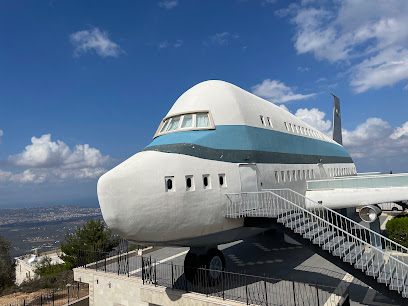
Mar Mema Church - Ehden
Explore the architectural beauty and serene surroundings of Mar Mema Church, a spiritual gem in Ehden, Lebanon.
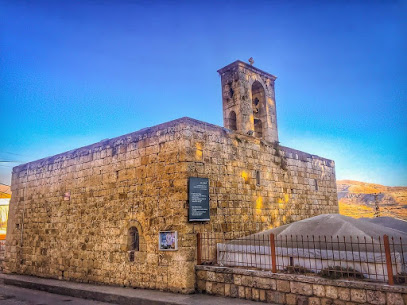
Mazar Saint Rafqa
Explore the tranquil beauty of Mazar Saint Rafqa, a serene garden in Basloukit, Lebanon, perfect for relaxation and spiritual reflection.
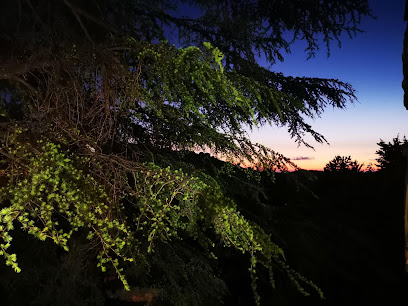
Sawaky Cross
Experience the serene beauty and rich history at Sawaky Cross, a must-visit tourist attraction in Bchernata.
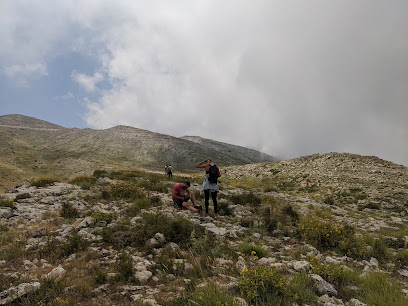
نبع سكر
Discover the tranquil beauty of the Spring of Sugar in Qarsita, Lebanon, a hidden gem perfect for nature lovers and adventure seekers.
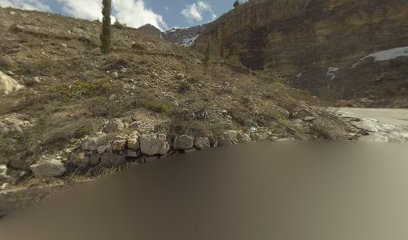
NICOLAS J CHAKHTOURA CEDARS HILL EhdenEhden
Experience the breathtaking beauty of Cedars Hill in Ehden, Lebanon, where nature and culture intertwine in a serene mountain escape.

Nebeh Mar Sarkis & Bakhos
Discover the natural beauty and serene hiking trails at Nebeh Mar Sarkis & Bakhos, perfect for nature lovers and adventure seekers alike.
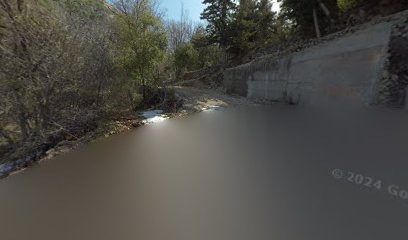
Ain Naasa
Explore Ain Naasa, a serene hiking area in Afqa, where stunning trails and breathtaking views await nature lovers and outdoor enthusiasts.
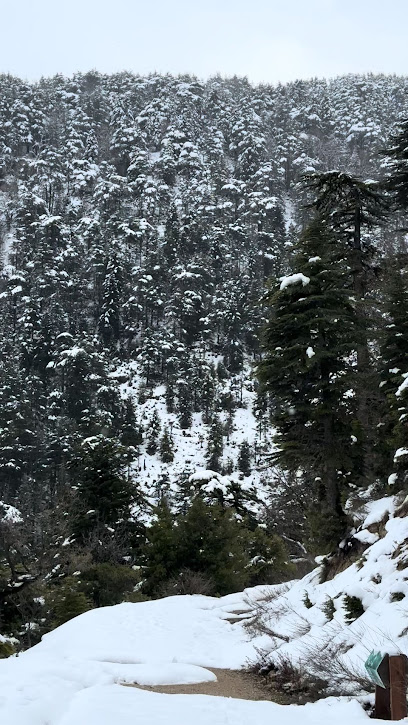
My tree
Discover the tranquil allure of My Tree in Ariz, a majestic natural landmark perfect for relaxation and connecting with nature's beauty.

خزان ماء محمد الشبلي
Explore the breathtaking beauty and rich history of Khazan Ma'a Mohammed Al-Shibli, a must-see tourist attraction in Qarsita, Lebanon.
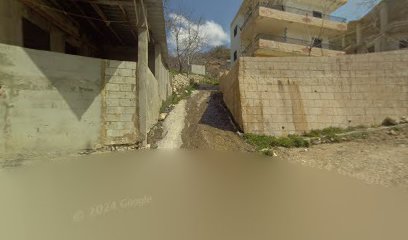
طاحونة بيت الخير
Explore the picturesque Tahouna Beit El Khair in Kfaryachit, Lebanon, where stunning architecture meets serene natural beauty.
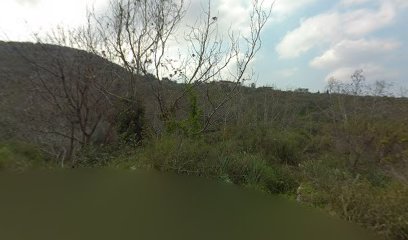
Essential places to dine
Al Ferdaws Restaurant
Experience authentic Lebanese cuisine at Al Ferdaws Restaurant in Ehden—where every meal is a journey through flavor and tradition.
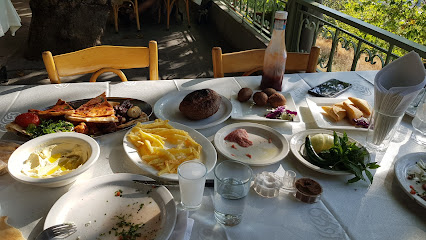
Bab El Hawa
Discover Bab El Hawa in Ehden: A top destination for authentic Lebanese cuisine with breathtaking views and vibrant atmosphere.
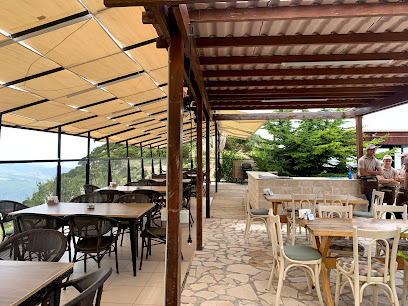
Massaya Zaman Restaurant
Experience authentic Lebanese cuisine at Massaya Zaman Restaurant in Zgharta - where tradition meets flavor in every dish.
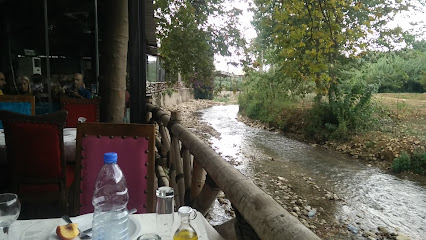
Bayt Setti
Experience authentic Lebanese flavors at Bayt Setti in Ehden – where every meal tells a story.
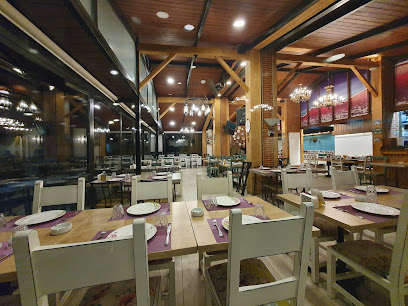
Platanus
Discover authentic Lebanese cuisine at Platanus in Ehden - where tradition meets taste in a stunning setting.
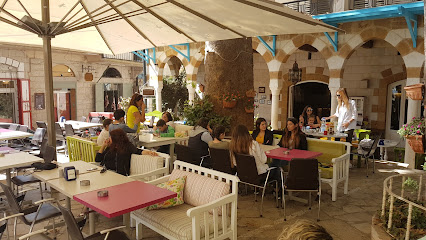
EDENBERG
Discover the flavors of Lebanon at Edenberg - where traditional cuisine meets stunning mountain views.
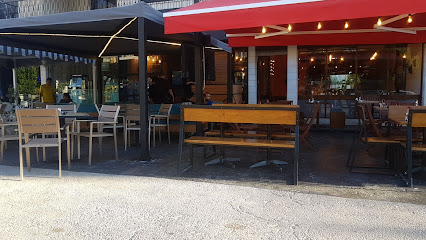
Jalset Al Sayyad - جلسة الصياد
Discover authentic Lebanese cuisine amidst stunning views at Jalset Al Sayyad in Ehden.
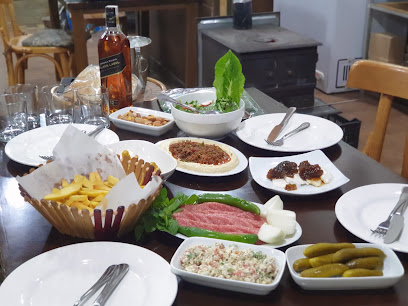
Sama Ehden Park
Discover culinary excellence at Sama Ehden Park, where authentic Lebanese flavors meet stunning natural beauty in the heart of Ehden.
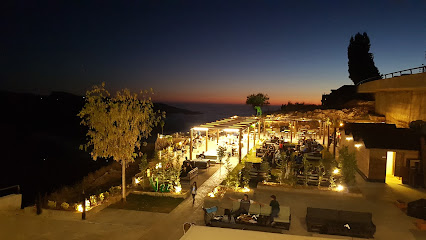
Drop In
Discover authentic Lebanese flavors at Drop In, Ehden's beloved restaurant and café nestled in Downtown Al Midan.
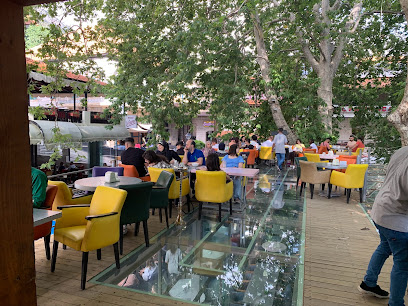
Diwan El Mezza Ehden
Experience authentic Lebanese cuisine at Diwan El Mezza Ehden, where every dish tells a story and hospitality shines.
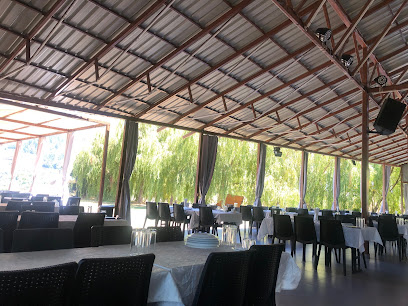
Bamboo Asian Cuisine - Ehden
Discover authentic Asian cuisine at Bamboo Asian Cuisine in Ehden - where tradition meets flavor in every dish.
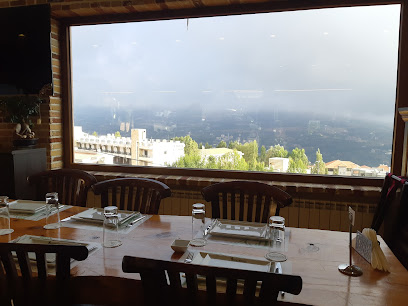
Hanin Ehden
Discover authentic Lebanese flavors at Hanin Ehden - where tradition meets taste in a charming setting.
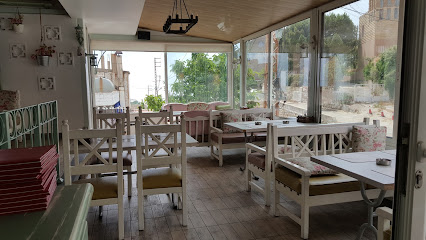
TAJ Ehden
Experience authentic Lebanese cuisine at TAJ Ehden – where tradition meets taste amidst stunning mountain views.
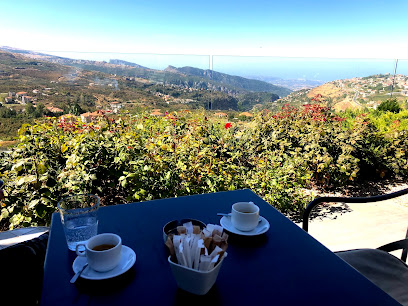
REEF EHDEN
Experience authentic Lebanese flavors at REEF EHDEN - where culinary excellence meets breathtaking mountain views.
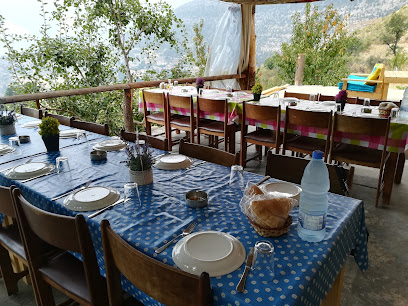
Tchrine- تشرين
Experience authentic Lebanese cuisine at Tchrine in Ehden—where tradition meets flavor amidst stunning mountain views.
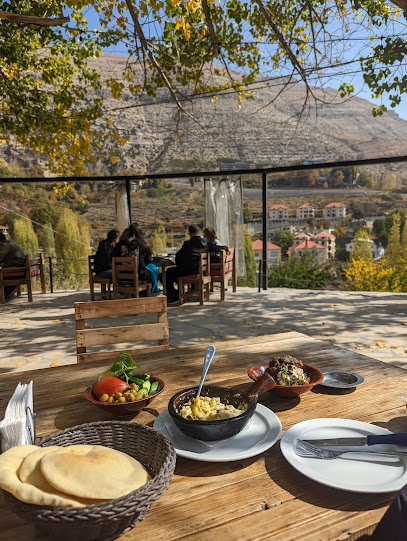
Markets, malls and hidden boutiques
Horsh Ehden
Explore the breathtaking beauty of Horsh Ehden National Reserve, a serene escape in Lebanon's majestic mountains, ideal for nature lovers and adventurers alike.
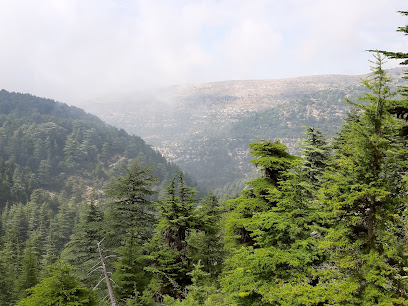
Youssef Beik Karam Statue
Visit the Youssef Beik Karam Statue in Ehden, a stunning historical landmark celebrating Lebanese heritage and offering breathtaking views.
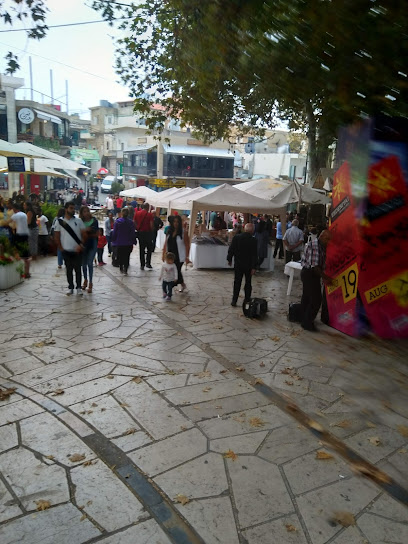
Easy Shop
Discover the vibrant shopping experience at Easy Shop in Ehden, where local flavors and international products come together under one roof.
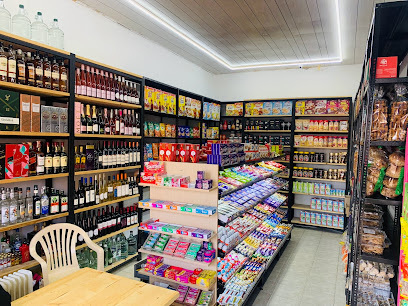
Haze Sunset Bar
Discover the enchanting Haze Sunset Bar in Ehden, where breathtaking views and delightful cocktails await every traveler seeking relaxation.
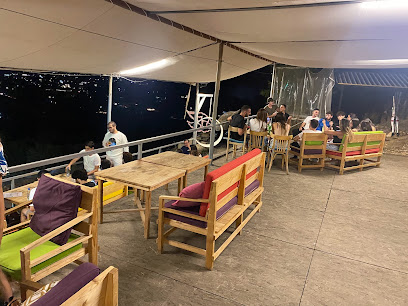
Patisserie Angela
Discover the sweet indulgence at Patisserie Angela in Ehden, where exquisite pastries and delightful desserts await every visitor.
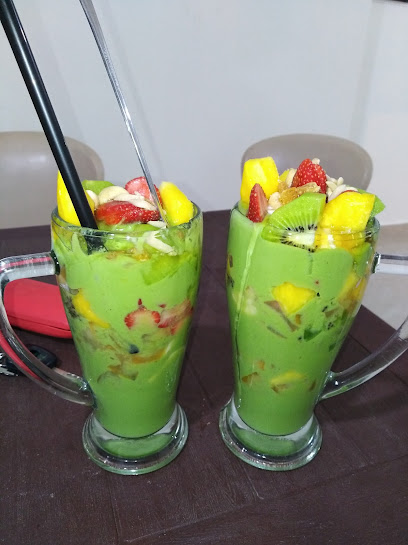
Shop and beyond
Explore a diverse range of health and beauty products at Shop and Beyond, your go-to destination for all wellness needs while traveling.
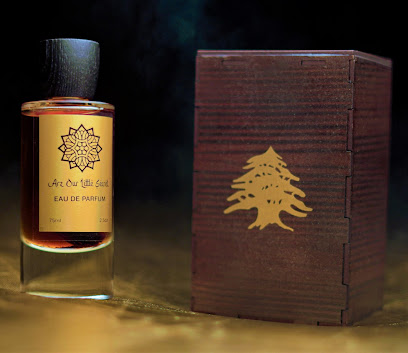
oddfish concept store
Discover the eclectic Oddfish Concept Store in Beirut, where art, fashion, and unique gifts come together in a vibrant shopping experience.
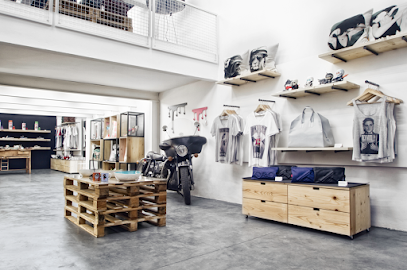
Molino Café
Experience the rich flavors of Lebanese coffee at Molino Café, a cozy spot in Old Town Ehden offering delightful brews and local cuisine.
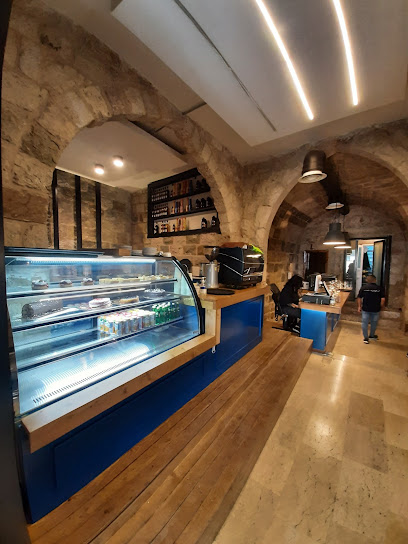
Mar Mema Church - Ehden
Experience the serene beauty and rich history of Mar Mema Church in Ehden, a spiritual landmark nestled in Lebanon's picturesque mountains.
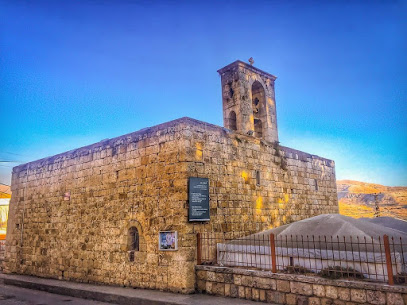
Midan Market
Discover local flavors and vibrant culture at Midan Market in Ehden, a delightful grocery store filled with fresh produce and authentic Lebanese goods.
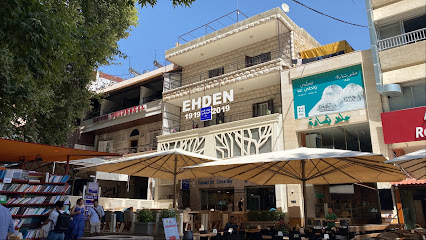
Lavender shop
Experience the serene charm of the Lavender Shop in Hazerta, where enchanting scents and handcrafted lavender products await every visitor.

Paraiso Dollar Shop
Explore budget-friendly shopping at Paraiso Dollar Shop in Ehden, where you can find everything from cleaning supplies to kitchen essentials at great prices.
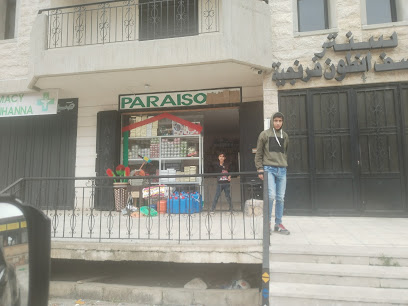
Milad Gitany Dollar Shop
Shop smart and discover unique finds at Milad Gitany Dollar Shop in Ehden, where affordability meets local culture.
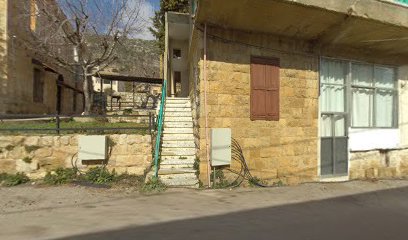
Comaro
Discover unique souvenirs and local crafts at Comaro, Zahlé’s charming gift shop, celebrating Lebanese art and culture.
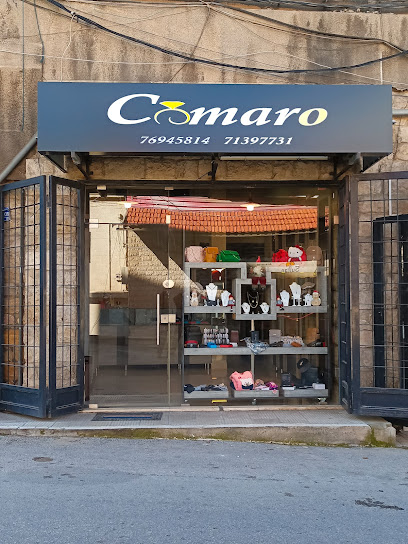
Ehden
Experience the authentic flavors of Ehden at this local supermarket, where fresh produce and Lebanese delicacies await.
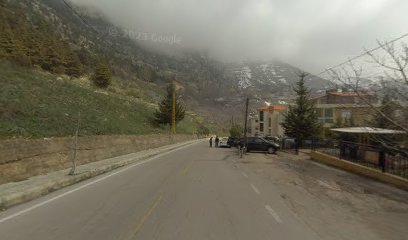
Essential bars & hidden hideouts
Bab El Hawa
Experience exceptional Lebanese cuisine with breathtaking views at Bab El Hawa in Ehden - a culinary gem that delights every visitor.
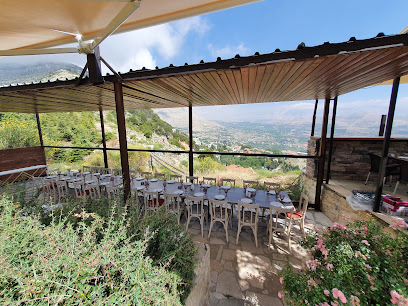
Restaurant Nebeh Jouit
Discover authentic Lebanese flavors in a picturesque setting at Restaurant Nebeh Jouit, Ehden's top dining destination for tourists.
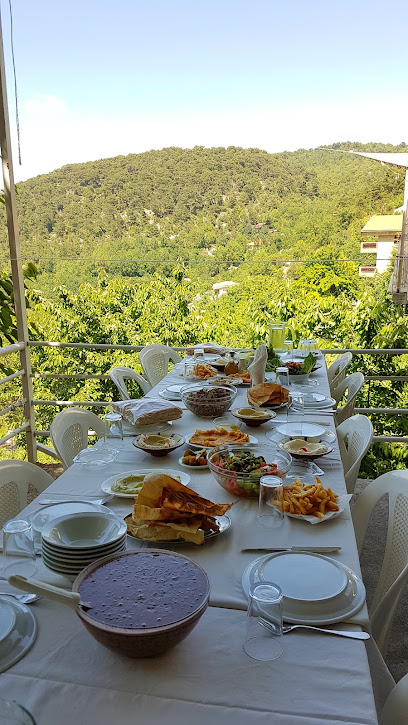
My Friends - Ehden
Discover the flavors of Lebanon at My Friends Restaurant in Ehden, where local cuisine meets exceptional hospitality in a cozy setting.
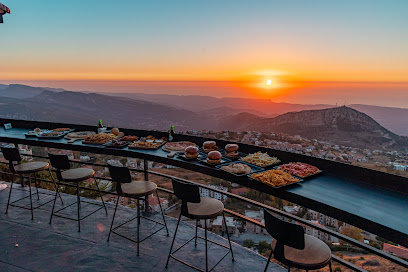
Escobar Ristorante Ehden
Experience authentic Lebanese cuisine in the heart of Ehden at Escobar Ristorante, where every meal is a celebration of flavor and hospitality.
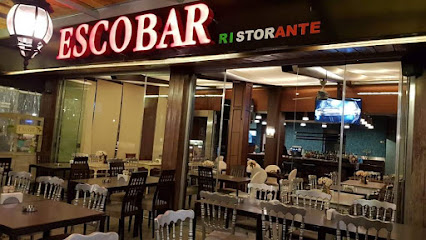
BarVu
Discover BarVu, the ultimate bar experience in Ehden, where vibrant nightlife meets stunning views and a diverse drink menu.
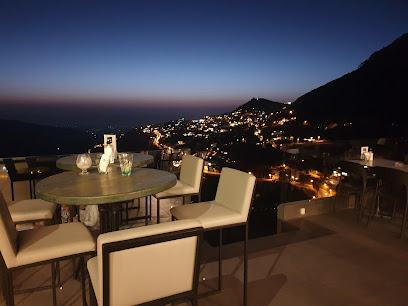
Haze Sunset Bar
Discover stunning sunsets and vibrant vibes at Haze Sunset Bar, a must-visit destination in the mountains of Ehden, Lebanon.
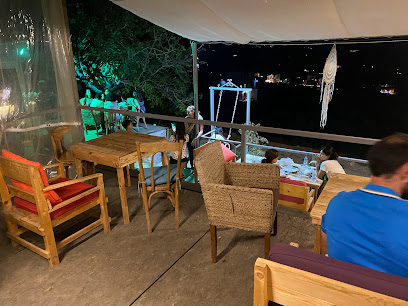
Minus Pub
Minus Pub in Ehden offers a lively bar experience with fantastic drinks, friendly locals, and a vibrant atmosphere perfect for nightlife enthusiasts.
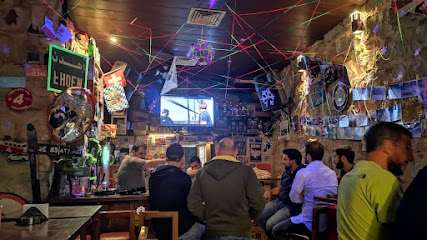
Hill 7 lounge
Discover the exquisite dining experience at Hill 7 Lounge in Ehden, where stunning views and delicious cuisine come together.
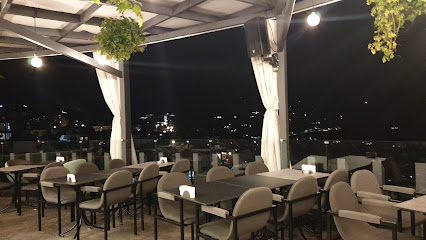
Vee Lounge
Discover the vibrant ambiance and exquisite drinks at Vee Lounge, Ehden's premier bar for relaxation and social engagement.
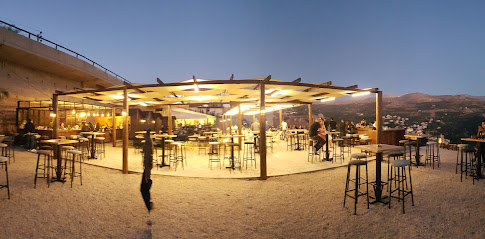
Bhava
Discover the lively essence of Ehden at Bhava, where amazing drinks and entertainment come together for an unforgettable night out.
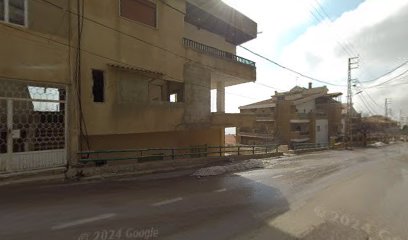
Aden
Discover the vibrant nightlife of Aden in Ehden, Lebanon - where delicious drinks meet welcoming ambiance and unforgettable experiences.
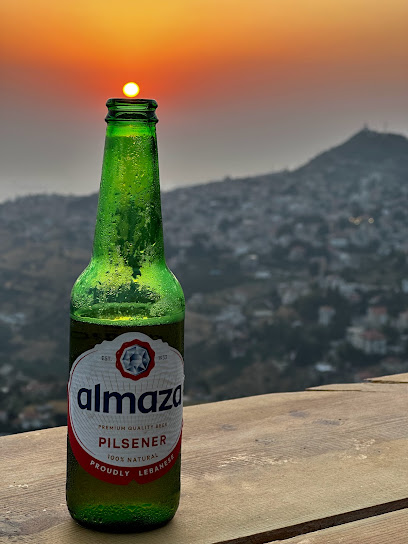
Loui’s Bar
Discover Loui's Bar: A vibrant nightlife spot in Ehden, Lebanon, offering a fantastic selection of drinks and a lively atmosphere.
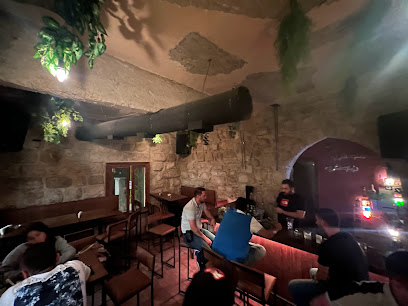
The Alpine Ale
Experience the charm of The Alpine Ale, a cozy pub in Bsharri offering local brews and a warm atmosphere for tourists seeking relaxation.
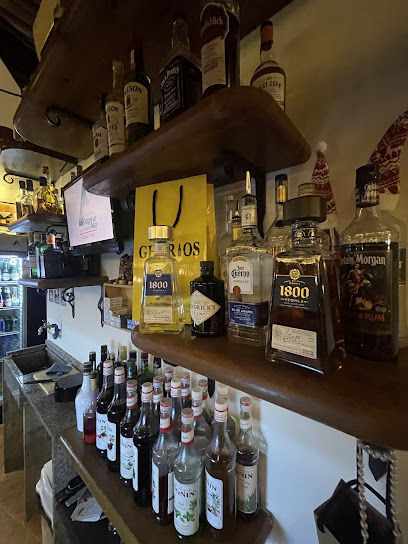
Le Bro
Experience the charm of Le Bro, a cozy bar in Ehden, offering delightful beverages and breathtaking views of nature's beauty.
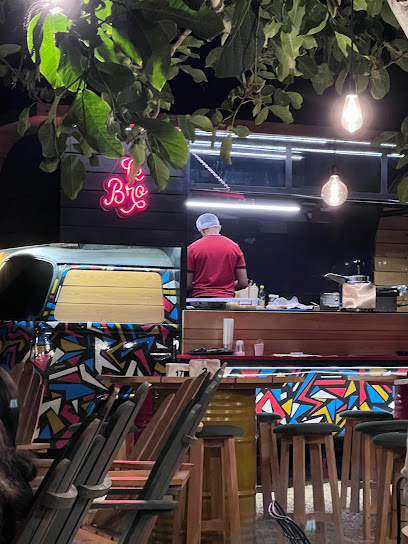
Local Phrases about Horsh Ehden
-
- Helloمرحبا
[marhaba] - Goodbyeوداعا
[wada'an] - Yesنعم
[naam] - Noلا
[la] - Please/You're welcomeمن فضلك
[min fadlik] - Thank youشكرا
[shukran] - Excuse me/Sorryعذرا
['uzrana] - How are you?كيف حالك؟
[kayfa halak?] - Fine. And you?بخير. وأنت؟
[bikhayr. wa ant?] - Do you speak English?هل تتحدث الإنجليزية؟
[hal tatahadath al-inglizia?] - I don't understandأنا لا أفهم
[ana la afham]
- Helloمرحبا
-
- I'd like to see the menu, pleaseأريد أن أرى القائمة، من فضلك
[uridu an ara al-qa'ima, min fadlik] - I don't eat meatأنا لا آكل اللحم
[ana la akul al-lahm] - Cheers!في صحتك!
[fi sahtak!] - I would like to pay, pleaseأود أن أدفع، من فضلك
[awadu an adfa', min fadlik]
- I'd like to see the menu, pleaseأريد أن أرى القائمة، من فضلك
-
- Help!النجدة!
[al-najda!] - Go away!اذهب بعيدا!
[idhab ba'idan!] - Call the Police!اتصل بالشرطة!
[itasil bis-shurta!] - Call a doctor!اتصل بطبيب!
[itasil bitabib!] - I'm lostلقد ضللت الطريق
[laqad dalalt al-tariq] - I'm illأنا مريض
[ana mareed]
- Help!النجدة!
-
- I'd like to buy...أريد أن أشتري...
[uridu an ashtari...] - I'm just lookingأنا فقط أتفرج
[ana faqat atfarih] - How much is it?كم هو ثمنه؟
[kam hu thamanuh?] - That's too expensiveهذا غالي جدا
[hatha ghali jiddan] - Can you lower the price?هل يمكنك خفض السعر؟
[hal yumkinuka khafd al-si'ar?]
- I'd like to buy...أريد أن أشتري...
-
- What time is it?كم الساعة؟
[kam al-sa'ah?] - It's one o'clockالساعة الواحدة
[al-sa'ah al-wahida] - Half past (10)الساعة العاشرة والنصف
[al-sa'ah al-'ashira wal-nusf] - Morningالصباح
[al-sabah] - Afternoonالظهر
[al-zuhr] - Eveningالمساء
[al-masa] - Yesterdayالبارحة
[al-barihah] - Todayاليوم
[al-yawm] - Tomorrowغدا
[ghadan] - 1واحد
[wahid] - 2اثنان
[ithnan] - 3ثلاثة
[thalatha] - 4أربعة
[arba'ah] - 5خمسة
[khamsah] - 6ستة
[sittah] - 7سبعة
[sab'ah] - 8ثمانية
[thamaniah] - 9تسعة
[tis'ah] - 10عشرة
[asharah]
- What time is it?كم الساعة؟
-
- Where's a/the...?أين يوجد...؟
[ayn yujad...?] - What's the address?ما هو العنوان؟
[ma hu al-`anwan?] - Can you show me (on the map)?هل يمكنك أن تريني (على الخريطة)؟
[hal yumkinuka an tarini (ala al-khartah)?] - When's the next (bus)?متى يأتي الحافلة القادمة؟
[mata ya'ti al-hafilah al-qadimah?] - A ticket (to ....)تذكرة (إلى ....)
[tadhkirah (ila ....)]
- Where's a/the...?أين يوجد...؟
History of Horsh Ehden
-
The history of Horsh Ehden dates back to ancient times. It is believed that the area was inhabited by various civilizations, including the Phoenicians, who were known for their maritime trade and advanced culture. Archaeological evidence suggests that the lush forests and natural springs of Horsh Ehden provided a hospitable environment for these early settlers.
-
Horsh Ehden is closely associated with the Maronite Christian community, which has deep roots in the region. The Maronite Christians, who follow a unique Eastern Catholic tradition, have played a significant role in shaping the cultural and religious landscape of Ehden. The area is home to several historic Maronite monasteries and churches that date back to the medieval period.
-
During the Ottoman Empire's rule over Lebanon from the 16th to the early 20th century, Horsh Ehden experienced significant changes. The Ottomans established administrative control over the area, and the local population engaged in agriculture and trade. The forests of Horsh Ehden were also a valuable resource, providing timber for construction and fuel.
-
Following World War I, Lebanon came under French mandate, and Horsh Ehden saw further development. The French influence is evident in some of the architectural styles and infrastructure projects initiated during this period. The mandate era also saw increased attention to the preservation of natural areas, including the Horsh Ehden Nature Reserve.
-
Established in 1992, the Horsh Ehden Nature Reserve is one of Lebanon's most important protected areas. The reserve covers over 1,000 hectares and is home to a diverse range of flora and fauna, some of which are endemic to the region. The creation of the reserve marked a significant effort to preserve the natural heritage of Ehden and promote eco-tourism.
-
Today, Horsh Ehden is a popular destination for both local and international tourists. It offers a unique blend of natural beauty, historical significance, and cultural richness. Visitors can explore the dense forests, hike scenic trails, and visit ancient monasteries, all while experiencing the warm hospitality of the local community. The area continues to be a testament to the enduring legacy of its diverse historical influences.
Horsh Ehden Essentials
-
Horsh Ehden is located in the Northern part of Lebanon, near the town of Ehden in the Zgharta District. The nearest international airport is Beirut-Rafic Hariri International Airport, approximately 110 kilometers away. From Beirut, you can rent a car or take a taxi to reach Horsh Ehden. The journey typically takes around 2 to 2.5 hours by road. Alternatively, you can take a bus from Beirut to Tripoli and then a taxi from Tripoli to Ehden.
-
Once in Ehden, the easiest way to reach Horsh Ehden Nature Reserve is by car or taxi. The reserve itself is best explored on foot, as it is a protected area with well-marked hiking trails. For local transportation within Ehden and nearby villages, taxis are readily available. Public buses are less frequent, so renting a car can provide more flexibility for exploring the surrounding areas.
-
The official currency in Lebanon is the Lebanese Pound (LBP), but US Dollars (USD) are widely accepted. Credit cards are accepted in most hotels, restaurants, and shops in Ehden, but it is advisable to carry cash for smaller establishments and when visiting rural areas. ATMs are available in Ehden, allowing you to withdraw cash as needed.
-
Horsh Ehden and the surrounding area are generally safe for tourists. However, it is always wise to take standard precautions. Avoid walking alone at night in unfamiliar areas and keep an eye on your belongings in crowded places. While there are no specific high-crime areas targeting tourists, it is best to stay vigilant and aware of your surroundings.
-
In case of emergency, dial 112 for police or 140 for medical assistance. The local police station and medical facilities are available in Ehden. It is recommended to have travel insurance that covers medical emergencies. For minor health issues, there are pharmacies in the town where you can purchase over-the-counter medications.
-
Fashion: Do dress modestly, especially when visiting religious sites. Avoid wearing revealing clothing. Religion: Do respect local customs and traditions. Always cover your head when entering churches and monasteries. Public Transport: Do be respectful and give up your seat to elderly passengers. Don’t eat or drink on public transport. Greetings: Do greet people with a handshake. A slight bow of the head is also a sign of respect. Eating & Drinking: Do try local delicacies and accept food offerings graciously. Don’t refuse hospitality, as it is considered impolite.
-
To experience Horsh Ehden like a local, visit the local markets in Ehden where you can buy fresh produce and traditional Lebanese goods. Engage with locals, as they are often friendly and willing to share stories about the area's history and culture. Don't miss out on trying local dishes such as 'Kibbeh' and 'Tabbouleh'. For a unique experience, join a guided hike in the Horsh Ehden Nature Reserve to learn about the diverse flora and fauna from an expert.
Trending Landmarks in Horsh Ehden
-
Cedars of God Bsharri
-
Kahlil Gibran Museum
-
Saydet el Hosn - Lady of the Fortress سيدة الحصن
-
MIST Hotel & Spa
-
Ehden Country Club
-
Ehdeniyat
-
Youssef Beik Karam Statue
-
Beit Mirna Guesthouse - Ehden
-
Hotel Ehden
-
Master's Hotel - Ehden
-
Karaz Guest House
-
Ehden Adventures
-
LA RESERVE HORSH EHDEN
-
Qannoubine Valley Bsharri
-
Les Caves d’ ÉDEN Winery
Nearby Cities to Horsh Ehden
-
Things To Do in Batroun
-
Things To Do in Byblos
-
Things To Do in Baalbek
-
Things To Do in Jounieh
-
Things To Do in Zahle
-
Things To Do in Broummana
-
Things To Do in Beirut
-
Things To Do in Anjar
-
Things To Do in Aley
-
Things To Do in Deir el Qamar
-
Things To Do in Rashaya
-
Things To Do in Sidon
-
Things To Do in Marjayoun
-
Things To Do in Tyre
-
Things To Do in Safed








